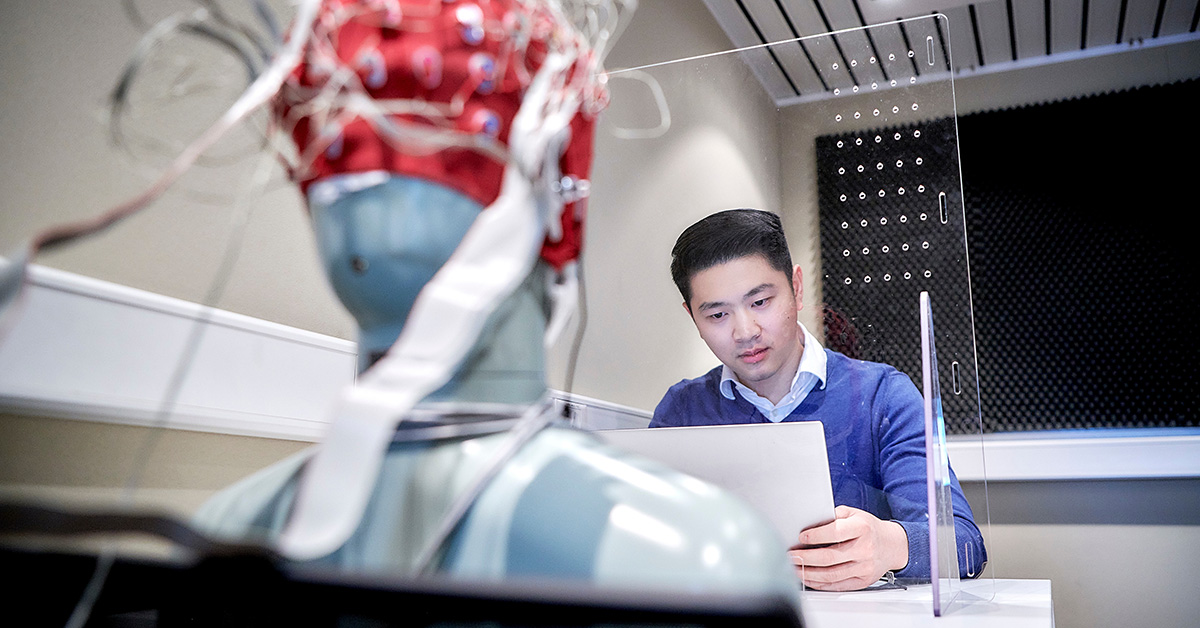2021/03/06 | Research | Rehabilitation & Neural Engineering
Improving Tinnitus Diagnostics
The Hearing Research Laboratory of the ARTORG Center and Inselspital has published their findings on temporary tinnitus suppression after acoustic stimulation (i.e., residual inhibition). In their study, the team showed that residual inhibition could be applied for refined tinnitus diagnostics.
 PhD student Suyi Hu with the setup to the Tinnitus study to follow.
(Photo: Adrian Moser © University of Bern)
PhD student Suyi Hu with the setup to the Tinnitus study to follow.
(Photo: Adrian Moser © University of Bern)
The team assessed the susceptibility to residual inhibition in 74 tinnitus subjects using acoustic narrow-band noise stimuli. They found that for subjects with hearing loss, tinnitus chronicity was not associated with residual inhibition, while a statistically significant negative association between tinnitus chronicity and residual inhibition susceptibility was observed in normal hearing subjects.
Moreover, they could demonstrate that the temporary suppression is stable over several repetitions. A systematic assessment of residual inhibition can therefore render diagnostically valuable information. These are significant findings that are applied in the group’s ongoing work to develop objective tinnitus diagnostics and targeted tinnitus management solutions (Tinnitus follow-up study).